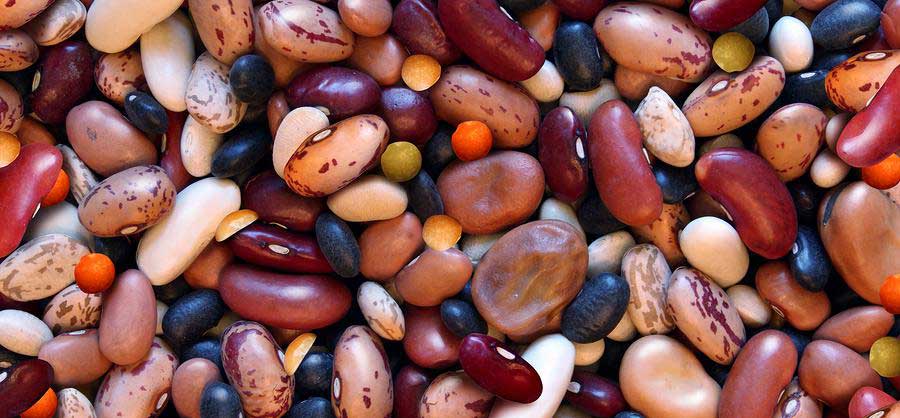If you have an interest in nutrition, chances are you've heard that fiber is an important part of a healthy diet. But what are the benefits of dietary fiber? Let's dive into the different types of fiber that exist, the foods that are full of fiber, and how fiber is beneficial to your health and can help prevent certain diseases.
What Is Fiber?
Found in grains, fruit, vegetables, nuts, seeds, beans, and legumes, fiber is a kind of carbohydrate. Often referred to as "roughage," this type of carbohydrate is found in two forms: soluble and insoluble. Fiber is considered relatively indigestible because it isn't easily absorbed as it travels through the gastrointestinal system.
6 Health Benefits of Dietary Fiber
1. It Boosts Digestive Health
The different types of fiber work in various ways to help you maintain or achieve digestive health. Soluble fiber and water forms a gel in the stomach that slows digestion, curbing diarrhea. Insoluble fiber works by absorbing water in the colon and bulking up the stool, helping those with constipation. Both kinds of fiber will help you maintain digestive health and regularity.
2. It Boosts Heart Health
Dietary fiber is known to have beneficial effects on different cardiac health risks. This is partially related to the fact that soluble fiber binds to cholesterol in the small intestine, discarding it from the body as it passes through the digestive system. A Journal of Chiropractic Medicine analysis of the current research on fiber and heart disease found that high fiber intake, whether from natural sources or supplements, reduced incidence and death of various cardiovascular diseases and stroke.
3. It Improves Immunity and Mental Health
Fiber is an effective prebiotic, providing food for healthy bacteria that grow in our gastrointestinal system to create the gut microbiome. The more rich and diverse the bacteria in our microbiome is, the more intense the benefit to our bodies. A healthy gut microbiome has been tied to improvement in immunity, gastrointestinal health, anxiety, depression, diabetes, and obesity.
4. It Reduces Cancer Risk
Nutrients published a study finding that fiber intake has protective benefits against colorectal cancer as well as an inverse relationship to colorectal cancer risk. For patients with preexisting colorectal cancer, higher fiber intake was discovered to be correlated with decreased overall mortality. Dietary fiber was also found to be associated with a reduced risk of acquiring pancreatic cancer.
5. It Reduces Diabetes Risk and Effects
Soluble fiber has protective effects against type 2 diabetes as well as therapeutic benefits for those who already have this type of diabetes. This is related to the improvement in blood sugar levels, insulin resistance, and metabolic profiles with regular consumption of soluble fiber. Soluble fiber helps prevent rapid blood sugar spikes by slowing digestion and allowing carbohydrates to be metabolized slower.
6. It Helps With Weight Loss
Because fiber slows stomach emptying, regular intake will keep you feeling fuller for a longer period of time, helping to aid weight loss. Also, foods that naturally contain fiber, such fruits, veggies, and whole grains, are full of vitamins and minerals, and tend to be lower in calories, helping to form a healthy diet needed to lose weight.
Sources of Fiber in the Diet
Foods that contain one kind of fiber will also typically have some of its counterpart. Oats, bran, barley, beans, edamame, tofu, flax, avocado, brussels sprouts, sweet potato, asparagus, figs, and fruit with skins are some of the best sources of soluble fiber. While wheat bran, beans, lentils, whole grains, flax, okra, and peas are great sources of insoluble fiber.
While foods that contain fiber tend to be healthy choices already, the fiber they contain has a meaningful effect on many different areas of health. From diabetes management to heart health, the benefits of dietary fiber in the body are amazing, so be sure to include foods that are rich in fiber at every meal if possible.




